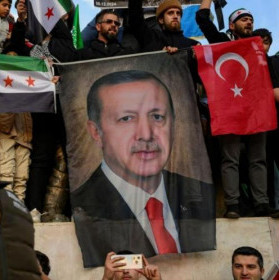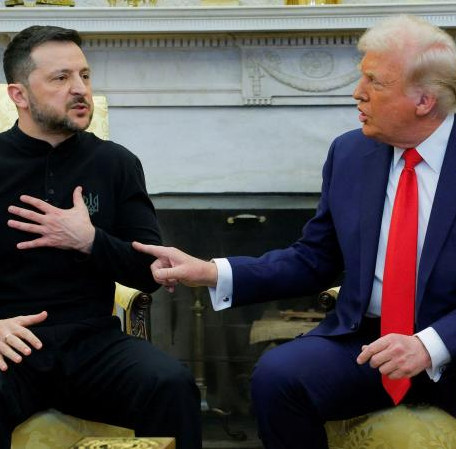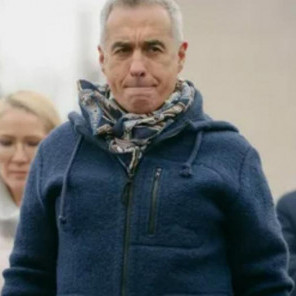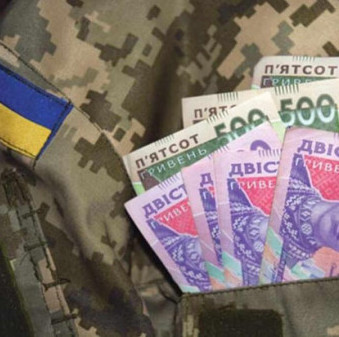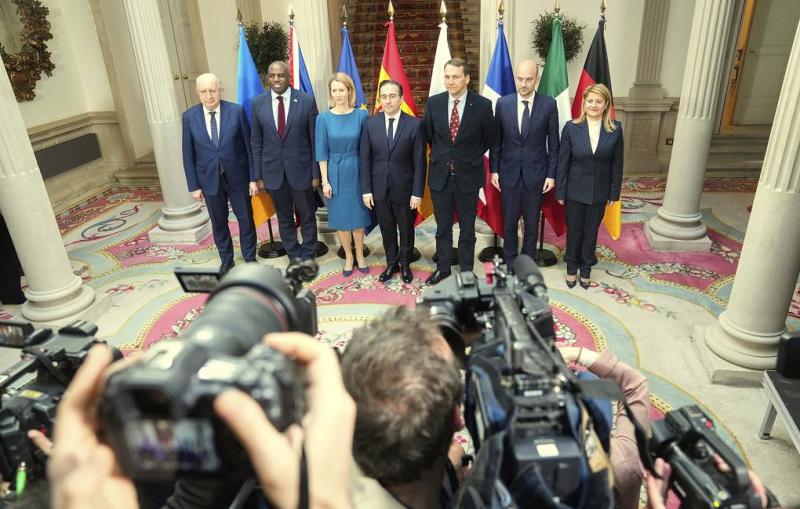
- Press review: Ukraine gets ready to host foreign troops as US prepares for trade war
- Press review: Rare earth talks boost Russia-US ties as EU seeks influence in Central Asia
- Press review: Germany mulls Nord Stream restoration as Zaporozhye NPP sparks talks
- Press review: Kiev challenges Black Sea deal as the US reasserts China as its top rival
The European Union and Great Britain are considering imposing additional sanctions on Russia, and US President Donald Trump gives Iran a two-month deadline for negotiating a new nuclear deal. Meanwhile, French opposition leader Marine Le Pen was prohibited from running in the 2027 election. These stories topped Tuesday's newspaper headlines in Russia, according to TASS News Agency.
Izvestia: EU, UK weighing new anti-Russian sanctions
European allies are considering imposing more sanctions on Russia, according to a joint statement issued by Weimar+ following Monday’s summit in Madrid. In it, the High Representative for Foreign Affairs and Security Policy, and the top diplomats of France, Germany, Italy, Poland, Spain, and the United Kingdom pledged to "increase pressure on Russia" for the sake of "a just and lasting peace" in Ukraine.
However, the West is very limited in its capabilities, as Russia has adapted to restrictions, Stanislav Tkachenko, St. Petersburg State University professor and Valdai International Discussion Club expert, pointed out. "They can keep expanding their sanctions so that those affect more businesses and individuals. Or they can impose restrictions on the defense industry and people with ties to it. The West has come to the point where severing relations completely or blocking the border can be a real threat, which is mutually dangerous, indeed. Or else they can impose more energy sanctions going beyond the latest price cap," the expert told Izvestia.
Yet, some countries, such as Hungary, are interested in Russian oil and gas imports, even as France and Spain, too, have been actively buying Russian LNG, Tkachenko noted. "Overall, we have adapted, and they won’t be able to come up with anything particularly damaging," he argued.
Meanwhile, the leading EU players and Britain believe that Washington, too, should put pressure on Moscow, and the latter has engaged in dialogue instead. At the same time, not everybody in Europe supports the joint French-British initiative to send troops to Ukraine.
And the Trump team listens to European voices the least, while any support for EU initiatives will depend on whether the US president succeeds in signing a deal with Ukraine, Sergey Shein, Senior Research Fellow at the Center for Comprehensive European and International Studies (CCEIS) at the Higher School of Economics, explained. "Moscow and Kiev face major problems in reaching any agreement, as the two sides are poles apart in their initial positions. So, if a temporary truce is delayed, the Americans may as well reconsider their stance and be more attentive to what the Europeans are doing. They could even try and synchronize watches with Brussels on something, but this would take at least several months anyway," Shein said. According to him, Europe has too few resources for more military aid to Ukraine, and efforts to ramp up its defenses would mean more debt and span more "five-year periods," he concluded.
Vedomosti: Whether Trump’s ultimatum to Iran may spark regional war
Iran’s armed forces have alerted their missile troops to attack US facilities in the Middle East in the event of any military threat, the Tehran Times reported on Monday. The news came a day after US President Donald Trump threatened to bomb Iran and impose secondary sanctions on buyers of its oil in an interview with Fox News unless Tehran signs a deal on its nuclear program with Washington.
To Yury Lyamin, a senior researcher at the Center for Analysis of Strategies and Technologies, the Tehran Times report is quite an expected leak amid the growing tensions between the United States and Iran.
The relations between Washington and Tehran deteriorated after Iran’s Supreme Leader Ali Khamenei rejected Trump’s proposal to revive talks on the Islamic republic’s nuclear program on March 8. And on the previous day, Trump told Fox News in an interview that he had sent a letter to Khamenei about negotiating a new nuclear deal and threatened consequences otherwise. While Trump never disclosed the contents of his message, in it, sources told Axios, the White House gave Tehran a two-month deadline for reaching a new nuclear deal. The chances of US military action against Iran would dramatically increase if Iran refuses to negotiate, the news portal wrote.
Giving ultimatums is a typical way of negotiating for the current US administration, Ilya Vaskin, a junior research fellow with the Center for the Study of the Middle East, the Caucasus, and Central Asia at HSE University. This is how Washington tries to push for a new deal, similar to the Joint Comprehensive Plan of Action (JCPOA), with Tehran on its terms, the expert continued.
"Over the past few years, the Iranians have advanced in their nuclear program and now, experts say, it will take them a few months to build a nuclear bomb, which concerns both the United States and Israel," Lev Sokolshchik, a senior researcher with the Center for Comprehensive European and International Studies at the Higher School of Economics, told Vedomosti.
Vedomosti: French court bans opposition leader Le Pen from running in 2027 election
On Monday, Marine Le Pen, the leader of France’s National Rally (NR) parliamentary faction, was found guilty of embezzling EU funds. A court in Paris banned the far-right politician from running for public office for five years and handed her a four-year prison sentence with two years to be served under house arrest. Also, Le Pen was sentenced to a €100,000 ($108,000) fine, France’s BFM TV reported.
NR’s president and MEP Jordan Bardella said the verdict means that "French democracy is being undermined." "Increasingly more European capitals are straying from democratic norms. While we have no intention of interfering in France’s internal affairs — and we have never done so — this remains a matter for France to resolve. Nevertheless, our observations regarding European capitals indicate a troubling trend of disregarding the boundaries of democracy in political processes," Kremlin Spokesman Dmitry Peskov told reporters on Monday.
The verdict came as a surprise even as French prosecutors sought such a sentence for Le Pen as early as late last year, Arnaud Dubien, director of the Franco-Russian Observatory think tank, said. While reaction from political forces to the left of Le Pen to the sentence was not surprising, the government in general has so far been silent, he noted. "A pardon from [French President Emmanuel] Macron is quite an unlikely, albeit not an impossible scenario that <…> can pave the way for an unprecedented situation," the expert argued.
Apart from Le Pen, almost 30 of her supporters were sentenced. Her verdict has dealt a major blow to their reputation, Pavel Timofeyev, head of the Section for Regional Issues and Conflicts at the Russian Academy of Sciences’ Institute of World Economy and International Relations, told Vedomosti. As for running in the presidential election, Bardella could replace Le Pen.
Alexey Chikhachev, a researcher at the MGIMO Laboratory of International Trends Analysis (LITRA), argues that Bardella is just "taking his first steps in French politics." Ahead of the 2027 election, Le Pen's positions were quite strong as she campaigned on a more moderate political agenda and did not conceal her ambitions, he added.
Izvestia: US holds back $500 mln worth of aircraft components bought by Russia
The United States has been holding back $500 million worth of spare parts for aircraft that Russia has purchased, and Moscow would like to have these deliveries released, Russian Industry and Trade Minister Anton Alikhanov told Izvestia. Also, Moscow sees a strong case in recognizing the repairs of Airbuses and Boeings made by Russian companies amid sanctions without a verifying license from foreign makers, he emphasized.
Cooperation between Russia and the United States in this sphere has been widely debated of late. American businesses in Russia are waiting for the lifting of sanctions on Russia that prohibit the servicing of aircraft and the supply of aircraft components, Robert Agee, president of the American Chamber of Commerce (AmCham) in Russia, said in early March. At the Istanbul meeting with the United States in February, the Russian delegation asked for direct flights to restart between the two countries. And Russia’s new ambassador to the United States, Alexander Darchiyev, announced plans to "examine closely" this issue.
Meanwhile, Russia has been developing its production of its own aircraft amid Western sanctions. The government has pledged to invest more than 770 billion rubles ($9 billion) in the industry until 2030. Russian President Vladimir Putin has ordered an increase in the share of Russian-made planes in fleets of Russian airlines to at least 50% by 2030. "Flying projects are currently underway. These include replacing engines for SSJ-100s and building new MS-21 jets. Whether those will be enough remains to be seen," Mikhail Mironyuk, associate professor with the Department of Politics and Management at the Higher School of Economics, told Izvestia.
And cooperation in civil aviation can be discussed at a future round of negotiations between Russia and the United States. The Russian economy is showing high resilience, so any compromises as regards the lifting of restrictions in exchange for some concessions from Russia are unlikely, Deputy Director of the MGPU’s Institute of History and Politics Vladimir Shapovalov believes.
Against this background, additional contacts between Moscow and Washington are expected to take place. NBC television reported that Trump is planning to hold another phone call with Putin soon. Also, Russia and the United States may hold a new round of negotiations on resolving the Ukraine conflict in Riyadh in mid-April, media reports indicate.
Kommersant: Trump’s rhetoric drives gold prices to all-time record
Gold on the global spot market has surpassed $3,100 per troy ounce for the first time ever. Bullish bets were mostly triggered by speculation of a recession in the US economy amid Trump’s aggressive foreign policies. And institutional investors have been securing profits amid such price gains. However, analysts do not see a further rise to between $3,300 and $3,500 per ounce amid the high demand from central banks.
"Investors have been selling US stocks as they fear that a new wave of Trump’s tariffs will spark inflation and effect economic growth, which could possibly trigger a recession in the US economy. So, by selling risk assets, investors are looking for a secure haven where demand for Treasury bonds and gold is strengthening," Mikhail Shulgin, chief analyst at Rosgosstrakh Life insurance company, told Kommersant.
"Amid deglobalization, trade protectionism, and ongoing military conflicts, the demand for gold from central banks looking to diversify their reserves will likely remain strong," he predicts.
And analysts do not see lower gold prices even if there is a de-escalation. "After easing inflation pressure, global regulators will start lowering key rates, which would support gold prices by making investments in local currencies less attractive," said Tsifra Broker leading analyst Natalia Pyryeva.
TASS is not responsible for the material quoted in these press reviews
